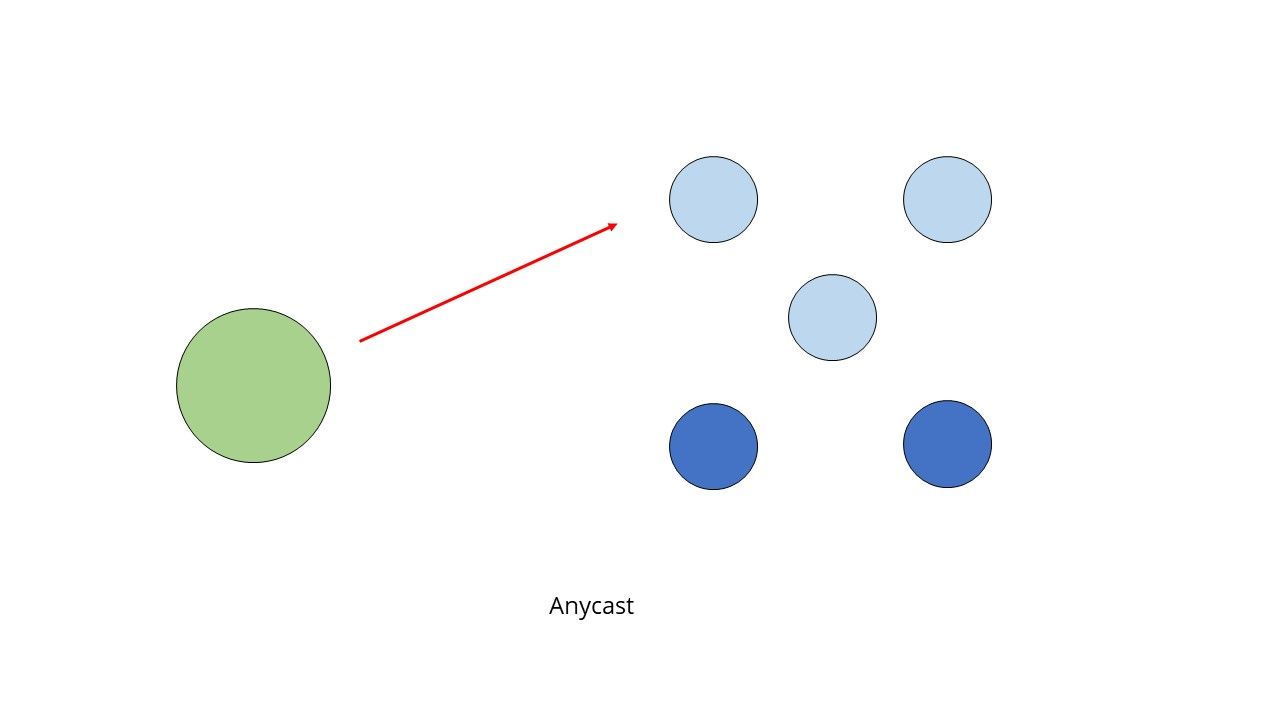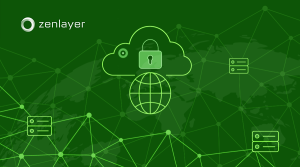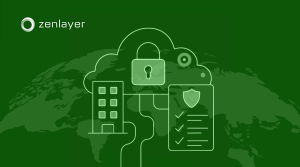Anycast overview
Anycast is a network addressing and routing method that attributes a single IP address to multiple servers in a network. The idea behind anycast is that data is sent to the closest server based on the location of the user request. By doing so, the user can reduce network hops and latency, reducing the time required for data transfer and enabling consistent global user experience.
Frequently used in applications like DNS (Domain Name System) and CDNs (Content Delivery Networks), anycast makes routing decisions that enhance network performance.

How does anycast work?
To understand how anycast works, we first need to understand how information is sent across the Internet.
Briefly, the Internet is made up of layers of networks composed of links, routers and end hosts. Information on the Internet is broken down into smaller chunks of data called packets, and routers help move these packets through the network smoothly. Each router has a specific transmission path for each IP address.
As we previously mentioned, with anycast multiple servers announce and share the same public IP address. To give an example, destination IP address 1.2.3.4 could be announced for a cloud node in Tokyo at the same time as it is being announced for nodes in London, Singapore and others. This minimizes latency and distributes traffic at various nodes.
Anycast directs packets to the geographically closest server based on Border Gateway Protocol (BGP) paths. When the router near the client requests the path to the IP, it receives various announced routes and selects the shortest path. With anycast, the system consistently chooses the shortest path every time. In the event of a node failure, the next shortest route is determined, and traffic is redirected without having to change the IP address.
Anycast Advantages and Disadvantages
Anycast routing brings about significant performance improvements, but it doesn’t come without limitations.
Advantages:
- Fast connectivity – Users are routed through the nearest node to minimize round-trip time.
- Load balancing – All of the servers can process and respond to a request and failover is completed via IP address rather than DNS.
- Ease of configuration management – A single DNS server configuration can be distributed to all nodes.
- DDoS mitigation – After filtering most of the attack, the remaining attack traffic is distributed to multiple data centers to prevent individual locations from becoming overwhelmed.
Disadvantages:
- Higher maintenance costs – Managing route announcements can be costly.
- IP routing limitations – Anycast is not aware of load or other application-layer metrics.
- Deployment challenges – Implementing anycast requires a certain level of technical expertise to deploy and manage; an address prefix and an AS number are required.
Zenlayer Anycast
Zenlayer currently offers anycast in conjunction with Zenworks products in Los Angeles, Singapore and Frankfurt. To utilize this service, users must simultaneously deploy three nodes.
Are you considering using a web hosting provider to run anycast on your organization’s behalf? Contact a Zenlayer expert to maximize uptime and availability.







